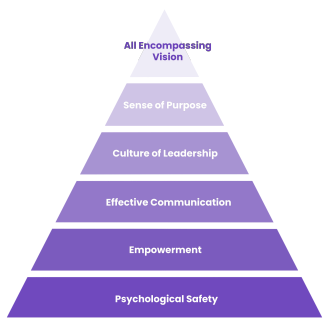Does the Heart Speak to Us? Unraveling the Mysteries
Have you ever felt a flutter in your chest when you see someone you love? Or a sinking feeling in your stomach when you’re nervous? The heart is often referred to as the seat of emotions, and many believe that it speaks to us in its own silent language.
Listening to Your Heart
While the heart is primarily an organ that pumps blood throughout our body, it is also closely connected to our emotions and intuition. Some people believe that the heart can communicate with us, guiding us towards what is right and true.
Listening to your heart involves paying attention to your emotions and inner feelings. It is about tuning in to the subtle messages that your heart sends you, often in the form of intuition or gut feelings.
The Language of the Heart
The language of the heart is not spoken in words but in feelings and sensations. It is a subtle form of communication that requires us to be in tune with our inner selves. Some common ways the heart communicates with us include:
- Intuition: That gut feeling you get when something doesn’t feel right.
- Emotional Responses: Feeling joy, sadness, or fear in response to different situations.
- Physical Sensations: Fluttering, racing, or sinking feelings in the chest.
Connecting with Your Heart
To better understand the messages of your heart, it is important to connect with it on a deeper level. This can be done through practices such as meditation, mindfulness, and self-reflection.
By quieting the mind and tuning into your inner self, you can create space to listen to what your heart is trying to tell you. This can help you make decisions that are aligned with your true desires and values.
Trusting Your Heart
Trusting your heart means having faith in your intuition and inner wisdom. It is about following your heart’s guidance even when it goes against logic or reason.
While it is important to use logic and reasoning in decision-making, there are times when following your heart can lead you to the right path. Trusting your heart is about listening to your instincts and having confidence in your inner voice.
The Heart-Mind Connection
There is a close connection between the heart and mind, with both playing important roles in our decision-making processes. While the mind is analytical and logical, the heart provides emotional guidance and intuition.
By balancing the wisdom of the mind with the insights of the heart, we can make decisions that are both rational and aligned with our deepest values and desires.
Frequently Asked Questions
What Does The Heart Symbolize?
The heart symbolizes love, compassion, and emotional strength.
Can The Heart Communicate Emotions?
Yes, the heart often reflects emotions like joy, sadness, and love.
How Does The Heart Influence Feelings?
The heart influences feelings through its connection with the brain and hormonal responses.
Do Heartbeats Change With Emotions?
Yes, heartbeats can quicken with excitement or slow with calmness.
Conclusion
While the heart may not speak to us in words, it communicates with us in its own silent language of emotions, feelings, and intuition. By listening to our hearts and trusting in their guidance, we can make decisions that are true to ourselves and lead us towards greater fulfillment and happiness.
So, the next time you feel a flutter in your chest or a sinking feeling in your stomach, take a moment to listen to what your heart is trying to tell you. You may just find the guidance you’ve been looking for.




